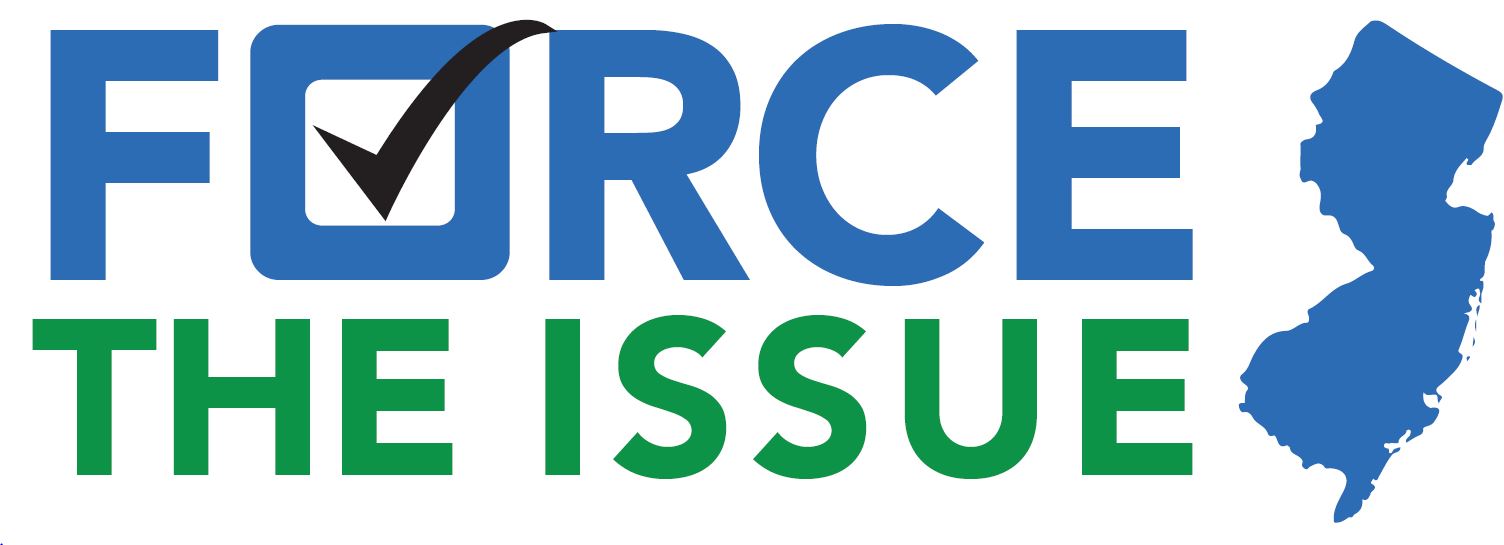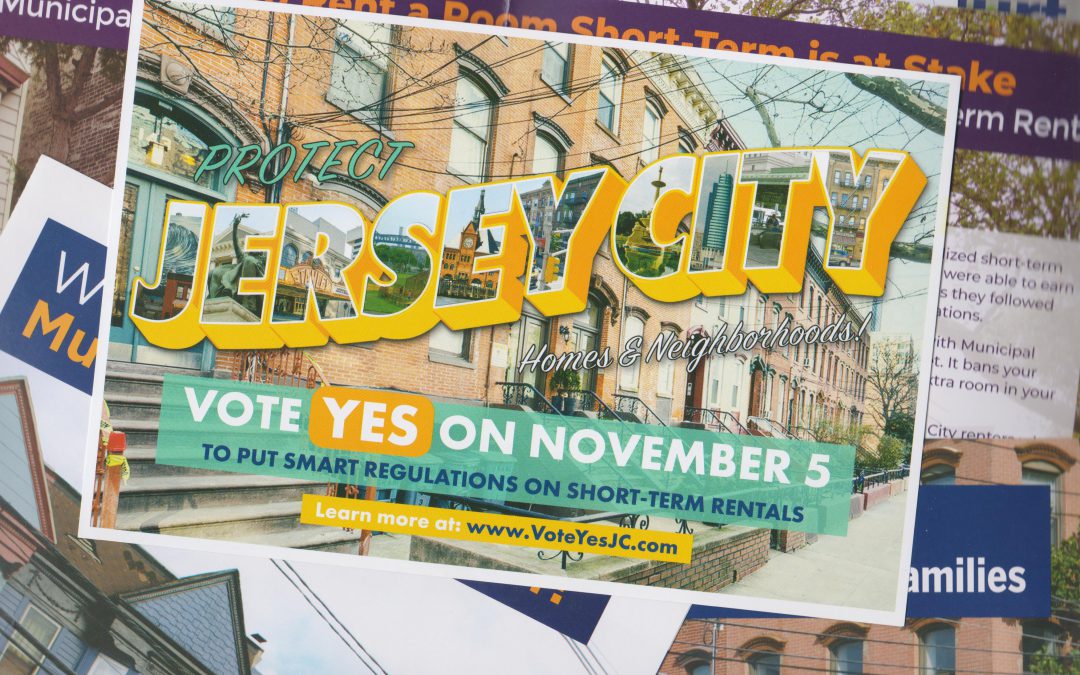This November 5th, Jersey City residents will have the opportunity to shape the future of short-term rentals, like those on Airbnb, in Jersey City. We at Force the Issue NJ are encouraging voters to vote Yes on Municipal Question 1, which will allow sensible regulations passed by the City Council and signed by Mayor Steven Fulop to go into effect.
There are a number of reasons to support the regulations. It helps control noise and litter, mitigate overcrowded street parking, and, overall, maintain quality of life. We want to build community with residents invested in the future of the city. We do not need residential buildings filled with unregulated hotels for tourists looking to visit New York City.
This ordinance, plainly, does not ban short-term rentals.
Most importantly, however, is that study after study after study after study after study has shown that Airbnb raises housing costs in cities with tight housing markets like Jersey City, making it even harder for residents with low or moderate income to afford housing.
This is a particular concern for Jersey City, which has seen steady increases in housing costs for years and a lack of affordable housing. Estimates indicate that around 3 – 5% of apartments in Jersey City (and 5 – 10% downtown) are now unregulated hotels through Airbnb, and that number is growing fast.
Many of these units have been purchased by companies or wealthy investors and converted into short-term rentals to pursue profit at the expense of working people and other long-time residents of Jersey City. In fact, approximately three-quarters of all Airbnb rentals in Jersey City are hosted by users with multiple Airbnb listings.
The ordinance overwhelmingly passed by the Jersey City council attempts to stem this dangerous buying up of housing stock with sensible regulations.
The Vote Yes campaign, on the other hand, has the support of the New Jersey AFL-CIO, Working Families Party, North New Jersey DSA, Make the Road New Jersey, the Hudson County Progressive Alliance, housing advocates, and other progressive organizations, like Force the Issue NJ.
The effort to challenge the regulations is being led by Airbnb (the chairperson of the organization covering the city in deceptive literature, “Keep Our Homes,” is an Airbnb press secretary), a multi-billion dollar company that has led similar efforts in other cities, spending millions of dollars on disinformation. They aim to do the same in Jersey City and spend $3 million on the effort.
Airbnb’s Keep Our Homes may encourage voters to “fight the power.” But, let’s be clear: this is an effort undertaken by a very powerful, multinational corporation to fight democratically enacted regulations. The Vote Yes campaign, on the other hand, has the support of the New Jersey AFL-CIO, Jersey City Education Association, Working Families Party, North New Jersey DSA, Make the Road New Jersey, the Hudson County Progressive Alliance, housing advocates, and other progressive organizations, like Force the Issue NJ.
There is a consistent pattern of Airbnb fighting municipal governments and circumventing democracy when regulations are imposed or enforcement is attempted, whether through suing municipalities or through referenda, like what they are attempting to do in Jersey City.
If you live in Jersey City, you’ve probably seen more than one leaflet from Keep Our Homes that claims that the regulations constitute a ban.
They say, “Make no mistake, Municipal Question 1 is a ban.” “A ban will hurt working families and seniors.” “We already have regulations…Municipal Question 1 is a ban and will cost Jersey City families.”
This ordinance, plainly, does not ban short-term rentals.
So what do the regulations actually do?
- Institute a 60 day cap for short-term rentals if the owner is not on site (preventing people and companies who own multiple properties from converting them into unregulated hotels)
- Prohibit short-term rentals in buildings that have 5 or more units, if the owner is not on site
- Prohibit renters from subletting their units short-term
If a homeowner wants to rent out a room, or their whole home every once in a while, they will still be able to do so.
These regulations are necessary, and without them, the situation will get worse and cause housing costs to continue to climb.
Airbnb and the investors it enables cannot be allowed to continue to make money at the expense of the working people of Jersey City. Access to affordable housing is one of the greatest challenges the city faces, and if these regulations do not go into effect, it will only get worse.
The only way Jersey City residents can counter all of the money that is pouring into disinformation on the other side is through people power.
So, what next?
- On November 5th, vote Yes on municipal question 1.
- Volunteer to canvass and speak to voters in your neighborhood.
- Share this post, as well as other pieces like this one by City Council Members James Solomon and Mira Prinz-Arey about the referendum, on social media.
- Talk to your friends and neighbors about what’s at stake. They, and you, are the only way we can win.


Excellent piece that explains the issue intelligently and calmly. Well done.
I think you have one thing wrong ,”Prohibit short-term rentals in buildings that have 5 or more units.” the new ordinance does allow for STR in condo’s and co-op’s that are 5 or more units. it leaves it up to the condo/co-op board to regulate. The wording is on the bottom of page 4 of the ordinance, B 1. Thanks,
Great article! Very informative and thorough.
In your second paragraph about why – there is a missed opportunity to highlight the main reason to keep affordable housing in JC.
Maybe you can also take the chance to address the two main counter arguments presented from the other side that confuse people:
1- unregulated STRs is not what AirBNB is promoting. They’ve agreed to provide somebody on site 24/7.
2- the anti movement is lobbied by the multi-billion dollar hospitality/hotel industry to keep the hotels more expensive. JC has the highest number of units for rent in the country already who are not in the Airbnb market.